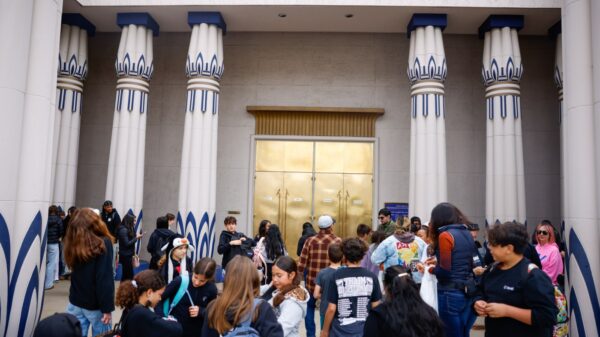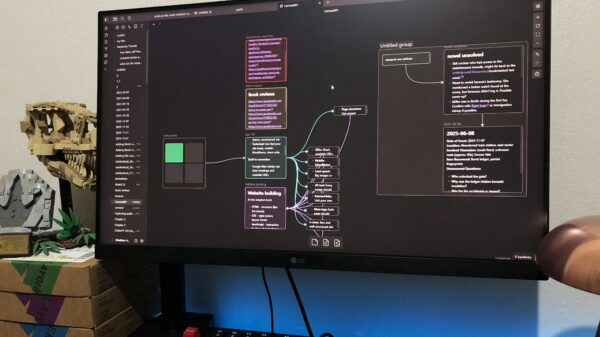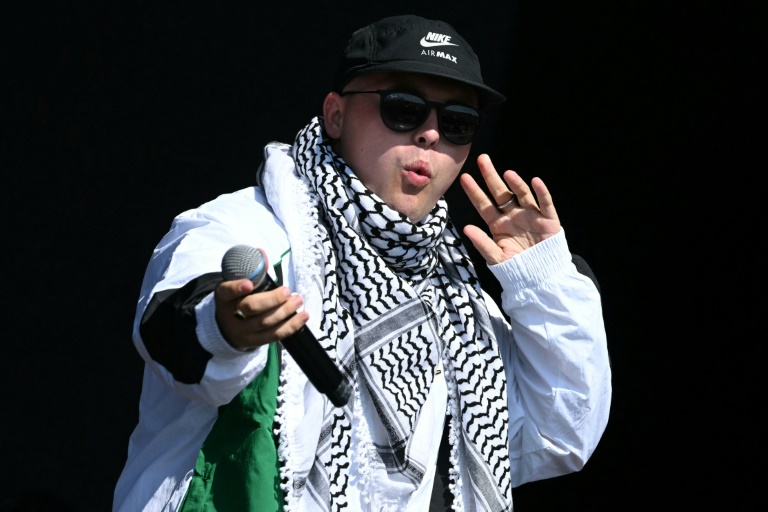Supporters of the Irish rap group Kneecap gathered outside Westminster Magistrates’ Court in London on Wednesday as band member Liam O’Hanna, known as Mo Chara, faced charges related to terrorism. O’Hanna, 27, is accused of displaying a Hezbollah flag during a concert in November 2022, an act that was deemed supportive of the proscribed group.
The court appearance comes amid a backdrop of heightened scrutiny surrounding the UK government’s stance on support for banned organizations. The hearing focused on whether the charge against O’Hanna falls within a six-month time limit for prosecution. Since Hezbollah was designated a terrorist organization in the UK in 2019, any public support for the group constitutes a criminal offense, punishable by up to 14 years in prison.
Kneecap has recently made headlines for their outspoken criticism of the Israeli government and the conflict in Gaza. Their supporters filled the courthouse area, many waving banners and chanting “Free Palestine.” One fan, Mary Hobbs, 31, traveled from Belfast to attend the hearing, expressing her belief that the charges are “ludicrous.” She stated, “The justice system is just broken when you have things like this happening.”
During a prior hearing, prosecutor Michael Bisgrove emphasized that the case centers not on O’Hanna’s views about Palestine but rather on his alleged display of the Hezbollah flag while reportedly chanting, “Up Hamas, up Hezbollah.” The prosecutor clarified that individuals are entitled to hold and express their opinions, but displaying the flag of a proscribed terrorist organization is a separate legal matter.
The controversy surrounding Kneecap extends beyond this case. The group, which performs in both Irish and English, is known for its provocative lyrics and has faced challenges with the UK government, particularly under the previous Conservative administration. Their music often includes themes related to the Irish political landscape, drugs, and criticism of British rule in Northern Ireland.
In addition, the band has gained international attention following the release of a semi-fictional film about their journey, which received accolades at major film festivals, including Sundance. This growing notoriety has solidified their place in contemporary music.
The current legal climate has raised concerns about free expression, particularly as the UK government has moved to prosecute over 700 individuals since the Palestine Action group was banned in early July 2023 under the Terrorism Act 2000. The ban followed a high-profile incident where Palestine Action claimed responsibility for a break-in at a military airbase causing an estimated GBP7.0 million ($9.3 million) in damages.
In a statement posted on X, Kneecap expressed gratitude for the support they have received from the public, insisting that the charges against O’Hanna are a mischaracterization of their intentions. They urged their supporters to respect police guidelines during the court proceedings.
As the case unfolds, the implications for both free speech and the interpretation of terrorism laws in the UK remain at the forefront of public discussion. The outcome may set a precedent for future cases involving expressions of political dissent and the limits of lawful protest.





































































